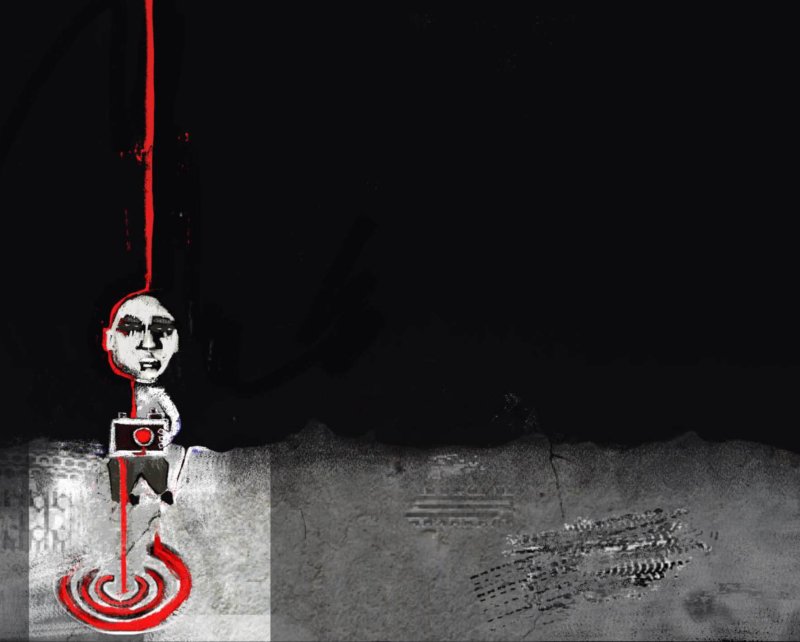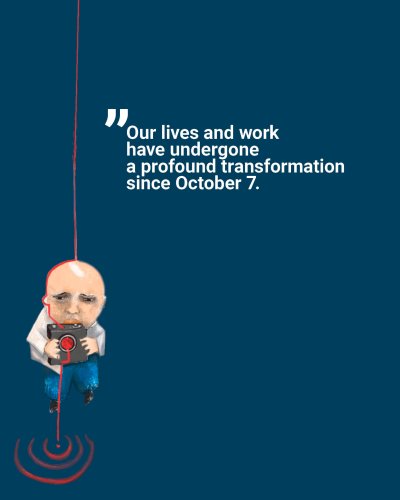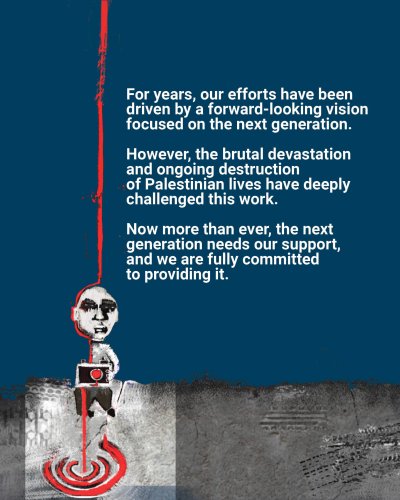Please describe what your organisation normally does, and how you have had to prioritise your work in Gaza and on the West Bank since October 2023.
Filmlab Palestine is an organisation committed to nurturing the growth of Palestinian cinema, to bolster Palestinian film production and cultivate a vibrant film culture. We achieve this by creating and sustaining a collaborative space where filmmakers can connect, exchange knowledge, share experiences and engage directly with the Palestinian public. Our mission is to amplify the visibility and quality of independent Palestinian narratives, with a focus on both local impact and global outreach.
Since the ongoing genocide in Gaza and the serious human rights violations and killings in the West Bank, our work has faced extreme challenges that require us to rethink our current projects and programs while dealing with a new form of financial and existential crisis.
We have also supported independent filmmakers in Gaza to produce and distribute their films. Our aim is to empower our society by supporting those who tirelessly tell the stories and produce the narrative on the ground. An example is the “Ghazawyat Project” where we support film productions that highlight the disproportionate impact of the war on women.
What has been an important work-related lesson learned?
The catastrophic year has shown that an organisation like ours must be able to adapt quickly to new situations and deal with emergencies.
Particularly important for our work and continuation has proven to be our well-established network of partners and like-minded organisations, which have not only assured us of their support over the past months but have also been able to work together to set new priorities given the current catastrophic living and working conditions we are confronted with. In addition to the exchange of content, it is above all the cooperation and energies that have resulted from this collaboration.
What is one thing you wish the world knew about your life and work since October 2023?
Our lives and work have undergone a profound transformation since 7 October. For years, our efforts have been driven by a forward-looking vision focused on the next generation, which has been the core of our mission. However, the brutal devastation and ongoing destruction of Palestinian lives have deeply challenged this work. Now more than ever, the next generation needs our support, and we are fully committed to providing it.
Planning and executing new initiatives in this context demand greater energy and resilience. It also necessitates substantial backing from donors and partner organisations. Beyond our work with and for the next generation, we must intensify our dedication to preserving narratives and stories – stories that risk being lost or overwritten by dominant, more powerful narratives. Strengthening networks and partnerships will be vital, not only to help disseminate these narratives but also to foster a space for shared experiences and mutual learning.






